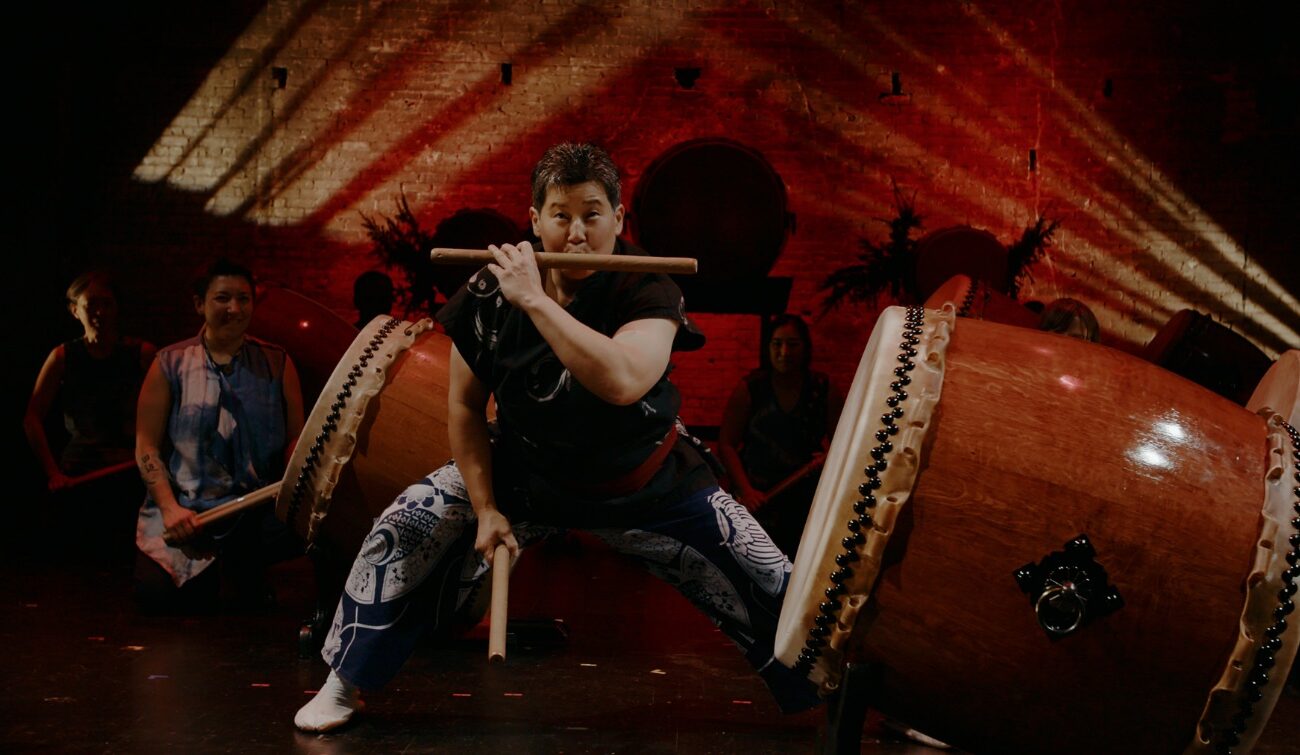The question is posed: What is it that we inherit from our respective families through the generations? Is it habits, rituals and dreams, or battles, successes and resentments?
Also, what loyalties and opportunities are passed down from one generation to the next?
These questions are explored through a host of short films and three full-length films at the 18th Annual DisOrient Asian American Film Festival of Oregon, which runs March 10 through 12 at Eugene Art House and then has a week-long virtual run.
The slew of short films at this year’s festival honors the heritage of those who struggled to get by; others honor the spirit of youth by bringing fresh faces and voices to the big screen.
Among them is director Iliana Garcia’s A Guide For When Immigrants Become Ancestors; Fox Eyes, from director Ella Jay Basco about the appropriation of Asian beauty features, and Stella, an animated short film about a young girl — director Steve Nguyen’s daughter — who envisions a world changing around her as she goes through an enchanted forest.
The opening night full-length film is Finding Her Beat, the story of a Korean adoptee in North Dakota who teams with a Japanese drum master to assemble the world’s best Taiko drummers. Sunday’s closing night full-length film, Land of Gold, is the moving story of a truck driver who hears banging inside a shipping container and discovers a Mexican American girl inside.
Saturday’s centerpiece film is the heartbreaking documentary 80 Years Later from director Celine Parrenas Shimizu, the story of two elderly Japanese Americans — Tadashi Robert Shimizu and Kiyo Fujiu — and how they came to reconcile their time as children in internment camps during World War II.
For Shimizu, who was very young when he and his family were swept up after the Pearl Harbor bombings, he remembers his time in the internment camp “in vignettes.” It would not be until years later, he recalls, that the heaviness of that time and of being Asian American in the U.S. started to wear on him.
He took the tone of his mother in later years, who he says was fond of the Japanese phrase Shikata ga nai (It cannot be helped). “You endure,” he says. “You figure it out.”
Shimizu would set out to assimilate in the U.S., dropping his Japanese first name to be known as Robert, raising a family in Ohio and losing touch with the Japanese language. Indeed, he dryly notes that his grandson, who is one-quarter Japanese, speaks the language better than he does.
Fujiu was a well-schooled teenager when she entered the internment camp, knowledgeable about Shakespeare, among other subjects. She recalls quoting a line intermittently from Macbeth while inside the camp (“Ay, my good lord: Safe in a ditch he bides…”), and was struck only later by the horror of it.
It’s the moment where the First Murderer character tells Macbeth that he has killed a perceived enemy of the state. “My lord, his throat is cut; that I did for him.”
“That was a betrayal of everything,” Fujiu says, still embittered of her family’s time, of everyone’s time, in the internment camps. “I felt so much rage at what can’t be expressed because it was not safe.”
80 Years Later is a powerful film inside a powerful collection of films at the DisOrient Asian American Film Festival of Oregon, works that tell the story of inheritance and ultimately love. Check it out.
The DisOrient Asian American Film Festival of Oregon is March 10 through 12 at Eugene Art House, 492 E. 13th Avenue. The virtual series runs March 13 through 19. Schedule and ticket information is at DisOrientFilm.org.
